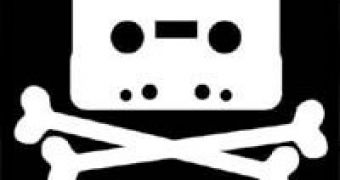It seems that the 'danger' has passed, after losing much of its momentum in the past few weeks, the White House has dealt a final blow to the much-maligned SOPA bill, by saying that it, which means President Barack Obama, will not support a bill that "reduces freedom of expression, increases cybersecurity risk or undermines the dynamic, innovative global Internet."
The long-awaited response comes after SOPA was already losing support and after it became clear that people won't shut up about it, fortunately.
But it was enough to kill SOPA, or at least put in on life support, indefinitely. The Stop Online Piracy Act and its sister-bill/predecessor the Protect IP Act, PIPA, were designed to curb online piracy, but their vague wording and broad effects were deemed extreme by most people in the tech industry and beyond.
The White House stresses that "online piracy is a real problem that harms the American economy, threatens jobs for significant numbers of middle class workers and hurts some of our nation's most creative and innovative companies and entrepreneurs."
That's something that most people agree on, though, unfortunately, it's taken on face value. Pro-file sharing leader Rick Falkvinge argues that saying things like this just to appease those trying to increase copyright protection does not really add to the discussion.
In any case, representatives of the White House argue that any legislation designed to protect rights owners must not interfere with the infrastructure of the web, i.e. no messing with the DNS system, and must be clearly targeted at sites that can't be affected by current US laws.
What's more, the White House believes there should be strong due process on a case-by-case basis and that involving third-parties, such as ad networks or payments processors, must be done very carefully.
However, the White House does want some sort of legislation to pass this year as long as it is supported by all sides. That seems rather unlikely.
"The Administration calls on all sides to work together to pass sound legislation this year that provides prosecutors and rights holders new legal tools to combat online piracy originating beyond U.S. borders while staying true to the principles outlined above in this response," the White House said.
"We expect and encourage all private parties, including both content creators and Internet platform providers working together, to adopt voluntary measures and best practices to reduce online piracy," it added.
All in all, while not taking sides too much, the White House made it clear that legislation like SOPA or PIPA would be vetoed. Unsurprisingly, almost immediately, SOPA was 'shelved,' most likely indefinitely.
"While I remain concerned about Senate action on the Protect IP Act, I am confident that flawed legislation will not be taken up by this House," House Oversight Chairman Darrell Issa said in a statement, claiming that there will be no vote on the bill any time soon.
"Majority Leader Cantor has assured me that we will continue to work to address outstanding concerns and work to build consensus prior to any anti-piracy legislation coming before the House for a vote," he added.
That said, there's no guarantee that a bill similar to SOPA won't resurface with another name and a few changes. But it is much less likely that it will pass given the amount of opposition SOPA has managed to attract.

 14 DAY TRIAL //
14 DAY TRIAL //